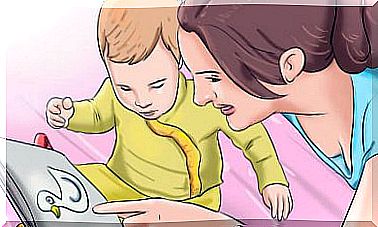Expressive Language Disorder

Expressive language disorder (ELD) is a speech difficulty that does not imply, at all, understanding what is said. In other words, you have difficulty speaking and writing, but not understanding what is being said.
It occurs in children whose age range is between 2 and 4 years of age, although the highest incidence is found in children with 2 years of age. The total percentage of cases is between 3% and 5% of the child population.
Expressive language disorder is characterized mainly by the excessive simplicity that the child has when expressing himself orally. His resources are limited, and he often leaves out words and structures when constructing his ideas.
Children with TLE do not have conversations because they have difficulty maintaining fluency in words. Although they do understand what is being said and can pronounce some words, they have trouble elaborating and going further.
As for the cause of expressive language disorder, it is still unknown. However, it is believed that the origin may be genetic, physical, or both. Brain damage in the brain area and malnutrition are considered factors to take into account.

Characteristics of expressive language disorder
- Excessive simplicity in the way of elaborating phrases, sentences and expressions.
- Speaking is avoided so as not to have to construct the speech.
- Incorrect use of verb tenses (present, past and future).
- Use of a very small number of words.
- Unusual word ordering.
- Difficulty remembering words.
- Grammatical omissions.
- Sentence shortening.
- Poor vocabulary.
Children who have an expressive language disorder are often perceived as shy or withdrawn children since they tend to remain silent. In reality, they may not be shy but simply do not want to express themselves out loud so that they do not have to elaborate sentences or make the effort to articulate and pronounce words.
In the school environment, they tend to avoid speaking in class. For example, if the teacher asks a question or proposes an oral activity, she will not participate.
During a reading, the child can pay full attention; however you will not be able to read aloud consistently. You will make mistakes and have difficulty expressing the written message in its entirety. In short, when expressed orally, the information will not make sense.
Recommendations and treatment
Since they can easily become a source of teasing, several measures are necessary to prevent their difficulty from affecting your self-esteem.
The first thing to do is tell the teacher what your problem is about. In this way, she will be well informed and will not berate the child for his mistakes. Likewise, he will try to keep the rest of the children under control when they try to make fun of his partner.
For example, it will invite them to be patient while the child reads aloud and reward positive attitudes. It will also reward the child’s progress and bravery.
At home, we should try to encourage him to read aloud (short texts) but always, from a happy and fun point of view to avoid the child seeing this as a kind of punishment. The idea is to persevere in the activities that lead him, little by little, to improve until he can make good use of the language.
Second, it is best to avoid punishing or reprimanding them for their failures. Instead, creativity and patience will be the best allies. There are parents who choose to do children’s karaoke sessions in order to correct mistakes in a more enjoyable way.

Third, once a therapy with a professional is initiated, it is extremely important that the indications made by the professional are applied.
Likewise, it is necessary to maintain support, contribute to self-acceptance and do not interrupt therapy until the problem has been definitively solved.
On the other hand, it is recommended to address nutrient deficiencies and provide the child with a balanced diet. For this, you can turn to a pediatrician or a nutritionist who is an expert in child nutrition.
Forecast
If all of the above recommendations are applied and therapy is completed, the child will be able to overcome his difficulty over time. Of course, not all cases are the same and you have to know how to respect the child’s rhythm.
It is not about a race but about solving the problem permanently. In conclusion, the prognosis will be as favorable as you decide to act.










